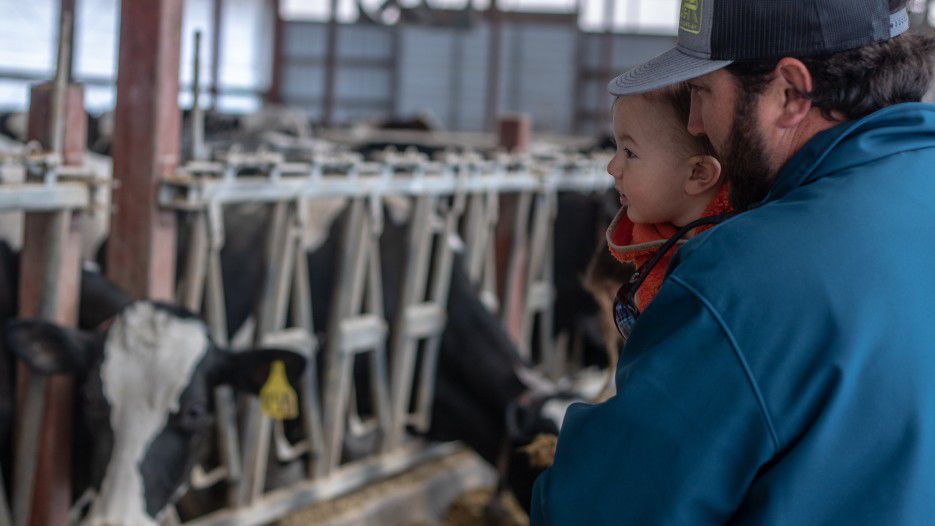U.S. Milk Remains Safe to Drink Among HPAI Outbreak
Published
5/3/2024
The last couple of years have seen outbreaks of Highly Pathogenic Avian Influenza in the spring and fall as temperatures change. However, this year has seen an unusual outbreak of the virus among dairy cattle.
"We've seen some positive cases pop up in dairy cattle, and this is a developing situation," said Bernt Nelson, an economist with the American Farm Bureau Federation. "This is changing, sometimes it's day by day, sometimes hour by hour. But what we do know so far is that milk is safe to drink. So, the positive tests in dairy cattle showed up around three weeks ago. Since then, we're at about 30 different dairy premises showing positive cases in eight different states."
Nelson says the impacts on the cattle have been minimal so far.
"There have been no deaths that are attributed directly to avian influenza. There is some co-morbidity happening where it seems if the symptoms of avian influenza are accompanied by other issues. So, some comorbidity is happening," Nelson said. "Overall, we're seeing a 20 to 30 percent decrease in milk production as a result of a slowdown in food and water intake. Any milk from these animals is thrown out, so it's not allowed to enter the supply chain, and animals are recovering after a couple of weeks."
Farmers and ranchers want consumers to know that milk remains safe to drink.

"Number one, their milk is safe to drink. Sick cows are pulled out of the herd, so their milk is not allowed to enter the supply chain. Further, pasteurization kills both bacteria and viruses. This includes high-path avian influenza, so their milk is safe to drink," Nelson said.
In an effort to isolate the virus, the USDA announced that they will be requiring all lactating dairy cattle to be tested for the HPAI virus before being allowed to cross any state lines throughout the entire United States (https://tinyurl.com/ny8du435). The Utah State Veterinarian's office and the Utah Department of Agriculture & Food (UDAF) have been in close contact with the USDA on how to both reassure consumers and help dairy farmers struggling with this issue. They have provided guidelines for farmers, which are available by contacting UDAF.
A month after Highly Pathogenic Avian Influenza was discovered in dairy cattle, the risk to humans remains low because of the pasteurization process.
Want more news on this topic? Farm Bureau members may subscribe for a free email news service, featuring the farm and rural topics that interest them most!
